Milestone in Physics.
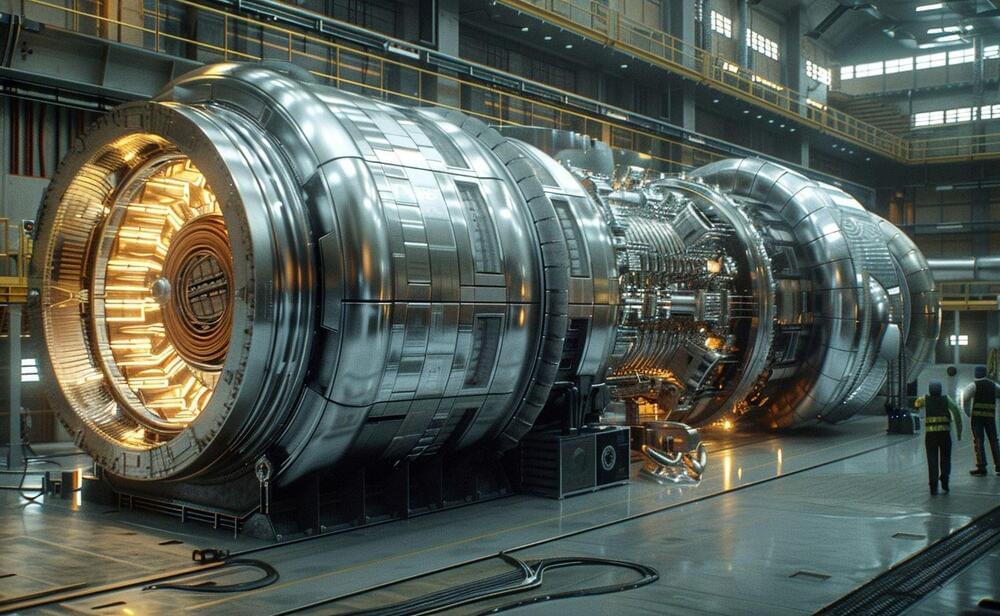

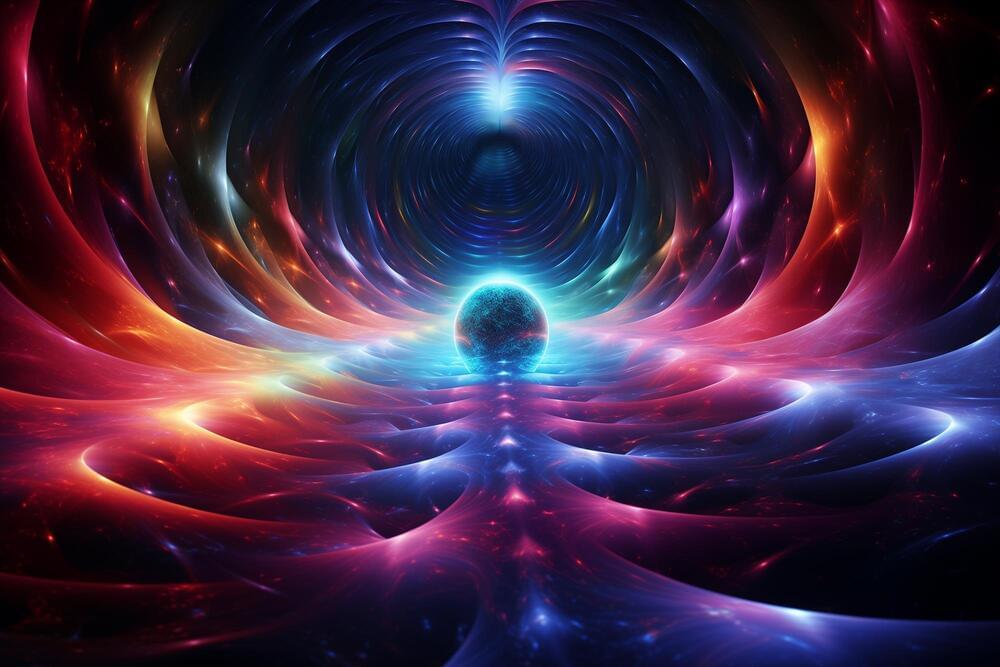
In a groundbreaking study, researchers have developed optical spring tracking to enhance signal clarity in gravitational-wave detectors, such as aLIGO.
This innovation could dramatically increase our understanding of cosmic events like black hole mergers, potentially unlocking secrets of the universe’s formation.
Revolutionary advances in gravitational wave detection.
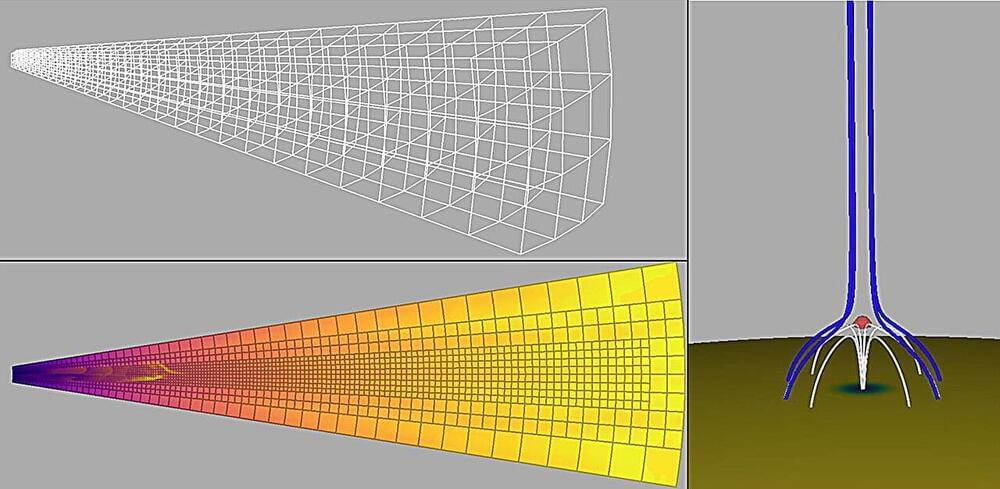
NASA’s Parker Solar Probe mission has detected magnetic distortions in solar wind, known as switchbacks. To better understand these phenomena, whose origins remain uncertain, a study was conducted by a network of collaborators. This study, published in the journal Astronomy & Astrophysics, reveals that solar jets can create similar disturbances without causing a complete reversal of the magnetic field.
NASA’s Parker Solar Probe mission revealed the presence of switchbacks, sudden and rapid reversals of the magnetic field in the solar wind. These peculiar phenomena, rarely observed near Earth, have captivated the scientific community due to their enigmatic origins. A leading theory suggests that switchbacks originate from solar jets, which are ubiquitous in the lower atmosphere of the sun.
To investigate their origins, a team of researchers from LPP, LPC2E, FSLAC, the University of Dundee and Durham University conducted 3D numerical simulations to replicate plasma behavior in the sun’s atmosphere. These simulations modeled solar jets and studied their propagation in solar wind.
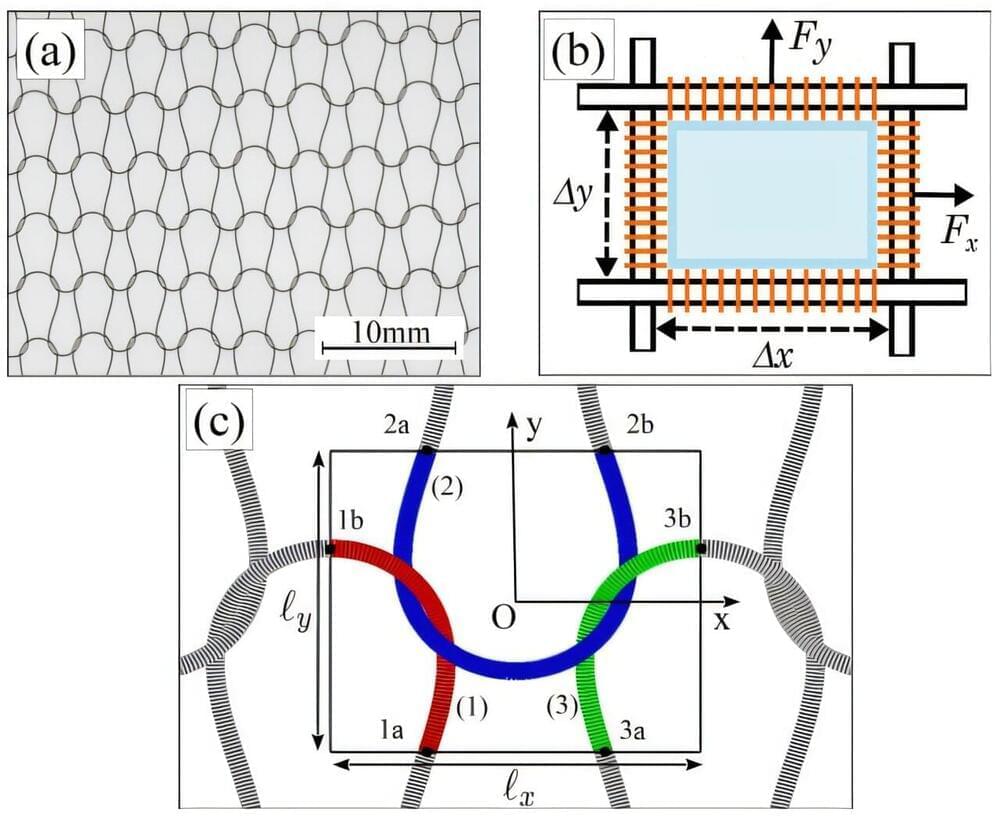
A trio of physicists from the University of Rennes, Aoyama Gakuin University, and the University of Lyon have discovered, through experimentation, that it is friction between fibers that allows knitted fabrics to take on a given form. Jérôme Crassous, Samuel Poincloux, and Audrey Steinberger have attempted to understand the underlying mechanics involved in the forms of knitted garments. Their paper is published in Physical Review Letters.
The research team noted that while many of the factors that are involved in intertwined fabrics have been studied to better understand their characteristics (such as why sweaters keep people warm despite the gaps between stitches), much less is known about the form garments made using such techniques can take.
To learn more, they conducted experiments using a nylon yarn and a well-known Jersey knit stitch called the stockinette—a technique that involves forming interlocked loops using knitting needles. They knitted a piece of fabric using 70×70 stitches and attached it to a biaxial tensile machine.
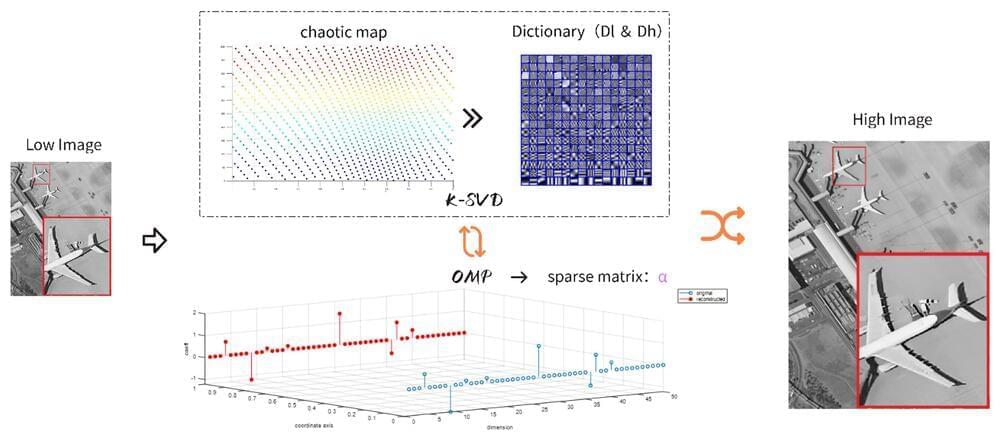
Super-resolution (SR) technology plays a pivotal role in enhancing the quality of images. SR reconstruction aims to generate high-resolution images from low-resolution ones. Traditional methods often result in blurred or distorted images. Advanced techniques such as sparse representation and deep learning-based methods have shown promising results but still face limitations in terms of noise robustness and computational complexity.
In a recent study published in Sensors, researchers from the Changchun Institute of Optics, Fine Mechanics and Physics of the Chinese Academy of Sciences proposed innovative solutions that integrate chaotic mapping into SR image reconstruction process, significantly enhancing the image quality across various fields.
Researchers innovatively introduced circle chaotic mapping into the dictionary sequence solving process of the K-singular value decomposition (K-SVD) dictionary update algorithm. This integration facilitated balanced traversal and simplified the search for global optimal solutions, thereby enhancing the noise robustness of the SR reconstruction.
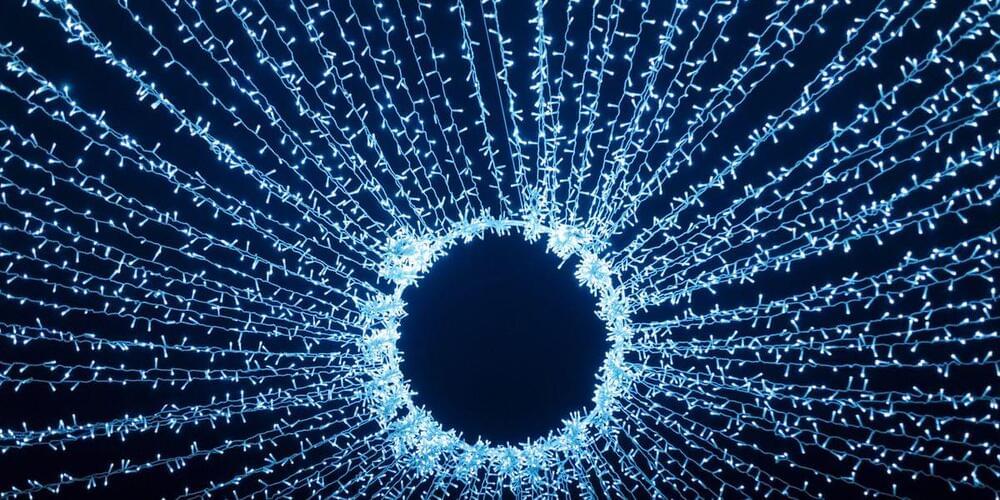
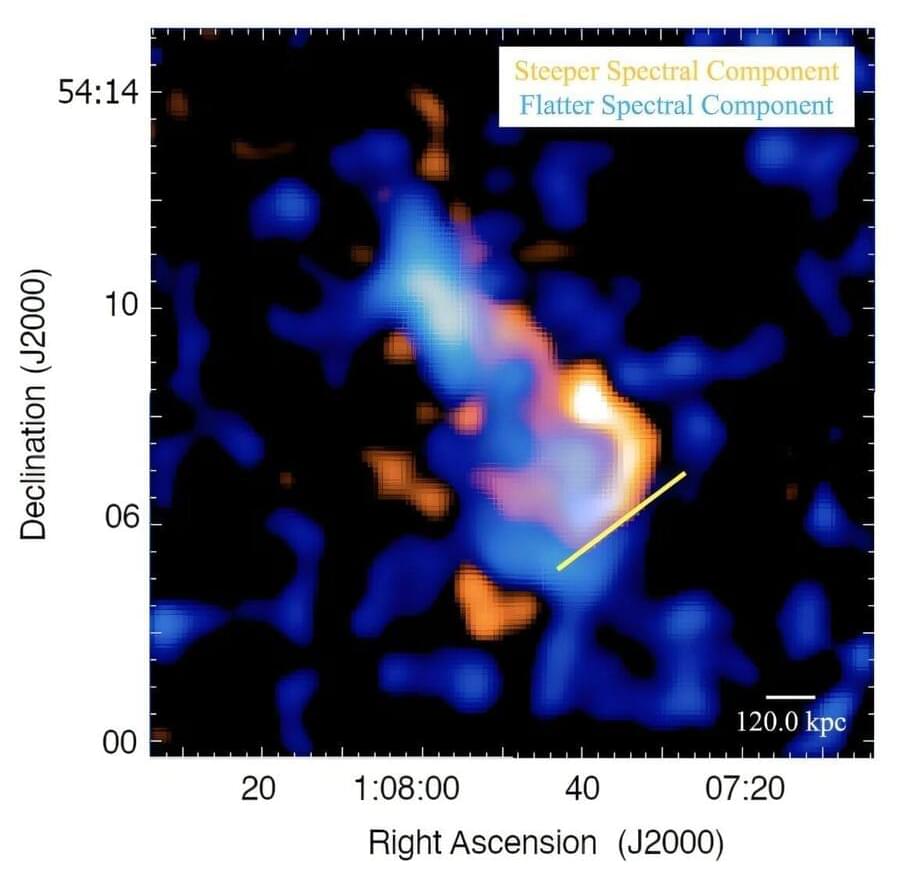
Using the Very Large Array (VLA), an international team of astronomers have observed a nearby galaxy merger known as CIZA J0107.7+5408. Results of the observational campaign, presented December 20 on the preprint server arXiv, could help us better understand the merging processes that take place between galaxy clusters.
Galaxy clusters contain up to thousands of galaxies bound together by gravity. They generally form as a result of mergers and grow by accreting sub-clusters. These processes provide an excellent opportunity to study matter in conditions that cannot be explored in laboratories on Earth. In particular, merging galaxy clusters could help us better understand the physics of shock and cold fronts seen in the diffuse intra-cluster medium, the cosmic ray acceleration in clusters, and the self-interaction properties of dark matter.
At a redshift of approximately 0.1, CIZA J0107.7+5408, or CIZA0107 for short, is a nearby, post-core passage, dissociative binary cluster merger. It is a large, roughly equal mass disturbed system consisting of two subclusters, hosting two optical density peaks, with associated but offset X-ray emission peaks.
Main episode with Woit and Conlon: https://youtu.be/fAaXk_WoQqQ
As a listener of TOE you can get a special 20% off discount to The Economist and all it has to offer! Visit https://www.economist.com/toe.
New Substack! Follow my personal writings and EARLY ACCESS episodes here: https://curtjaimungal.substack.com.
TOE’S TOP LINKS:
- Enjoy TOE on Spotify! https://tinyurl.com/SpotifyTOE
- Become a YouTube Member Here:
https://www.youtube.com/channel/UCdWIQh9DGG6uhJk8eyIFl1w/join.
- Support TOE on Patreon: https://patreon.com/curtjaimungal (early access to ad-free audio episodes!)
- Twitter: https://twitter.com/TOEwithCurt.
- Discord Invite: https://discord.com/invite/kBcnfNVwqs.
- Subreddit r/TheoriesOfEverything: https://reddit.com/r/theoriesofeverything.
#science #physics
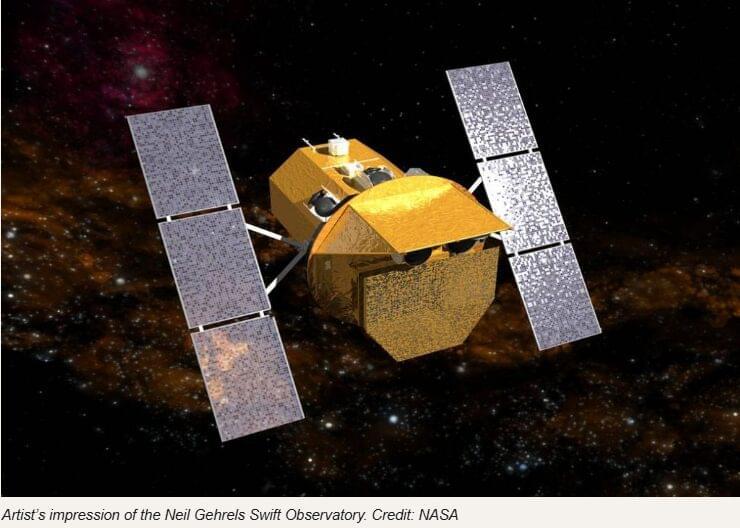
For the past 30 years, NASA’s Great Observatories—the Hubble, Spitzer, Compton, and Chandra space telescopes—have revealed some amazing things about the universe. In addition to some of the deepest views of the universe provided by the Hubble Deep Fields campaign, these telescopes have provided insight into the unseen parts of the cosmos—i.e., in the infrared, gamma-ray, and ultraviolet spectrums.
With the success of these observatories and the James Webb Space Telescope (JWST), NASA is contemplating future missions that would reveal even more of the “unseen universe.”
This includes the UltraViolet Explorer (UVEX), a space telescope NASA plans to launch in 2030 as its next Astrophysics Medium-Class Explorer mission. In a recent study, a team led by researchers from the University of Michigan proposed another concept known as the Mission to Analyze the UltraViolet universE (MAUVE). This telescope and its sophisticated instruments were conceived during the inaugural NASA Astrophysics Mission Design School. According to the team’s paper, this mission would hypothetically be ready for launch by 2031.
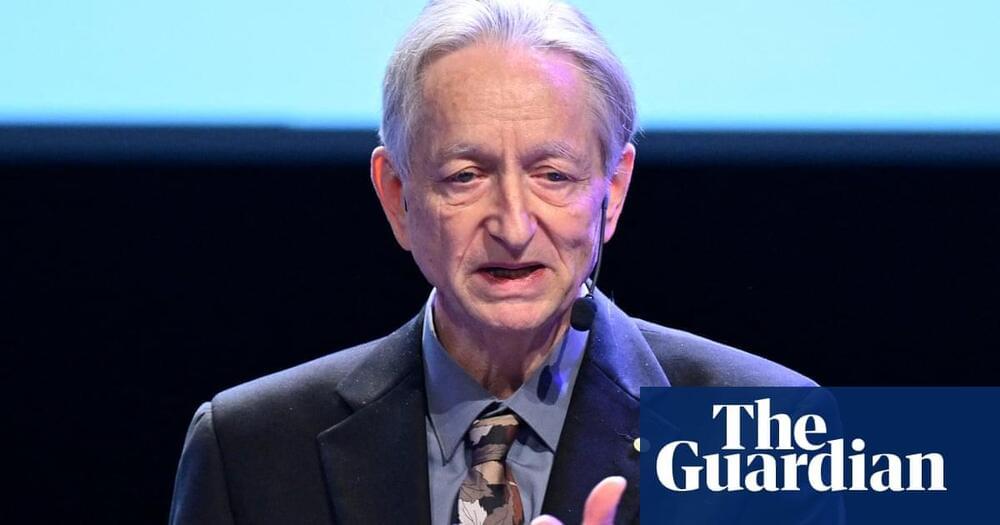
The British-Canadian computer scientist often touted as a “godfather” of artificial intelligence has shortened the odds of AI wiping out humanity over the next three decades, warning the pace of change in the technology is “much faster” than expected.
Prof Geoffrey Hinton, who this year was awarded the Nobel prize in physics for his work in AI, said there was a “10% to 20%” chance that AI would lead to human extinction within the next three decades.